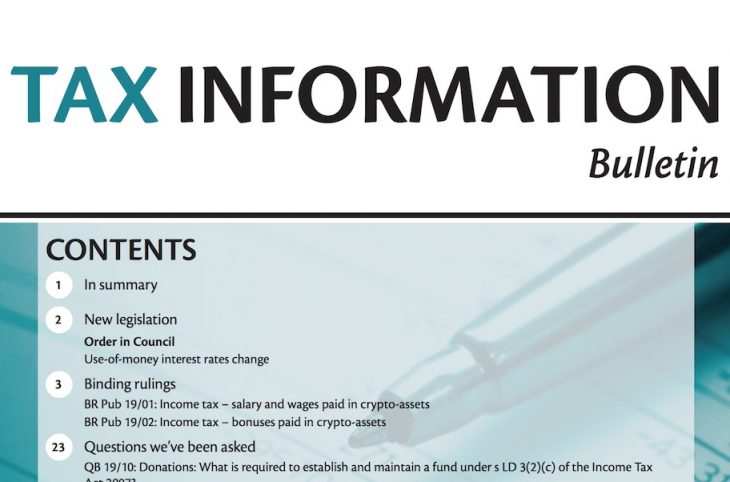
New Zealand’s tax office has ruled that receiving salaries in cryptocurrency is legal; and have provided a guideline for its taxation.
According to its recently published tax bulletin, the New Zealand Inland Revenue Department (IRD), lists the provisions of the public ruling under the country’s Tax Administration Act of 1994.
Details from the tax bulletin state that under the new directive, income tax on cryptocurrency will apply to payments in crypto that form part of the employees’ regular salary. It reads:
Employee can be paid salaries in crypto assets as long as the payments are for services performed under an employment contract, are for a fixed amount and form a regular part of the employee’s remuneration.
It notes that this will only apply to salary and wage earners under the PAYE (Pay As You Earn) income payments.
The tax directive also states that for income in crypto assets to be taxable, it must be “money-like” that is, able to be exchanged for fiat currency, must provide a general peer-to-peer payment system, and must function as currency or be pegged to one or more fiat currencies.
However, the new directive makes some exceptions; will not apply to crypto assets provided as shares or those received under an employee share scheme, willnot apply for self-employed tax payers.
This new ruling will apply for three years from September 1, 2019, and moves New Zealand to a crypto-adoption rank as salaries were only previously paid in cash (New Zealand Dollar).
Crypto taxation for wages, salaries or trade profits has become a common topic globally. While tax authorities say their primary aim is to curb tax evasion, it seemingly appears that the need to share in the crypto bounty is also a priority, with any coming to terms with the gains of digital assets.